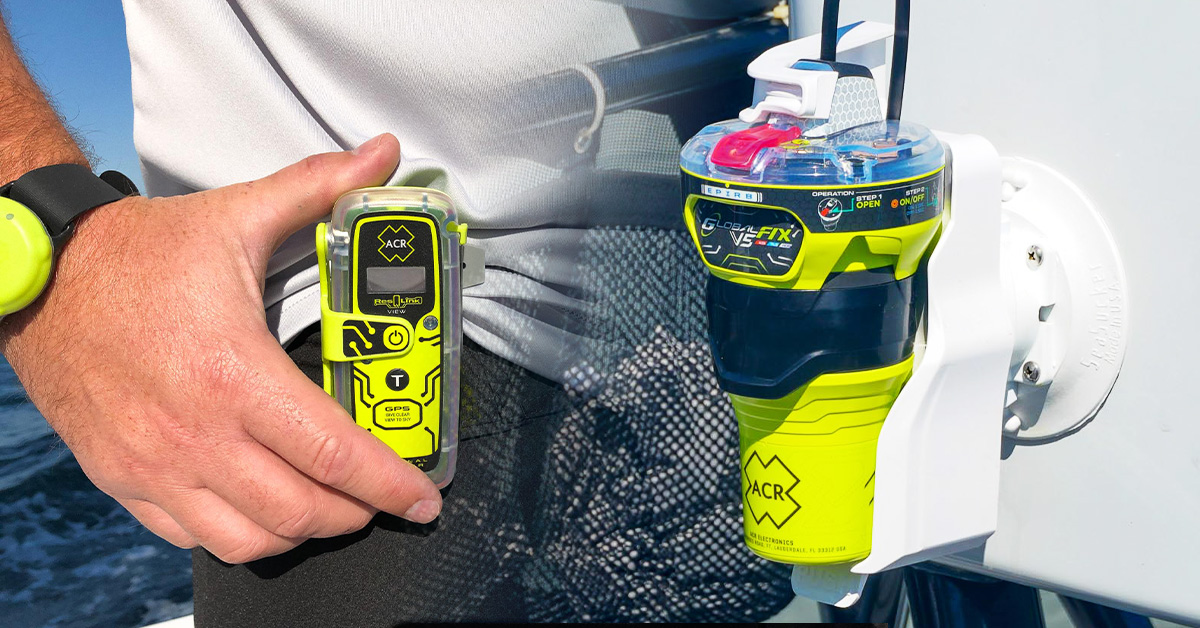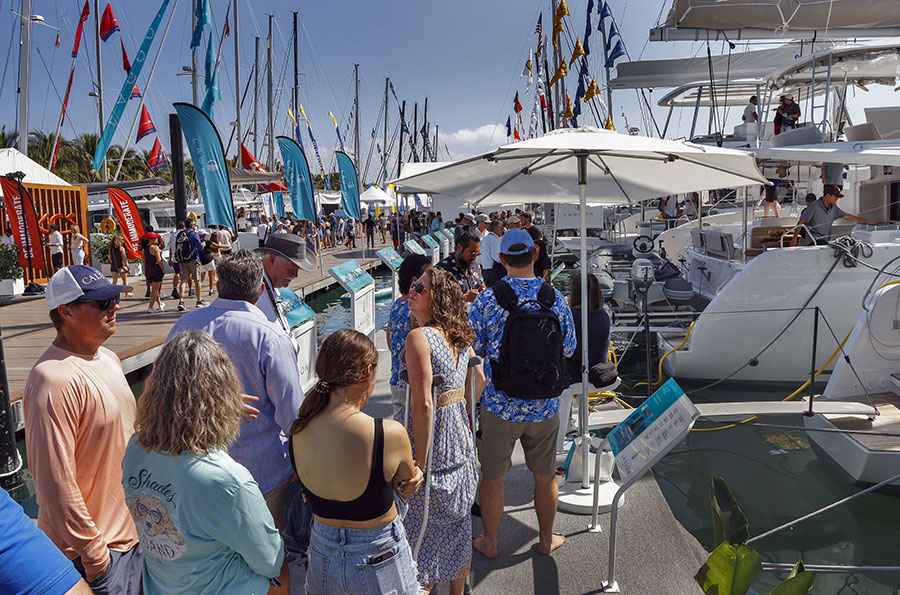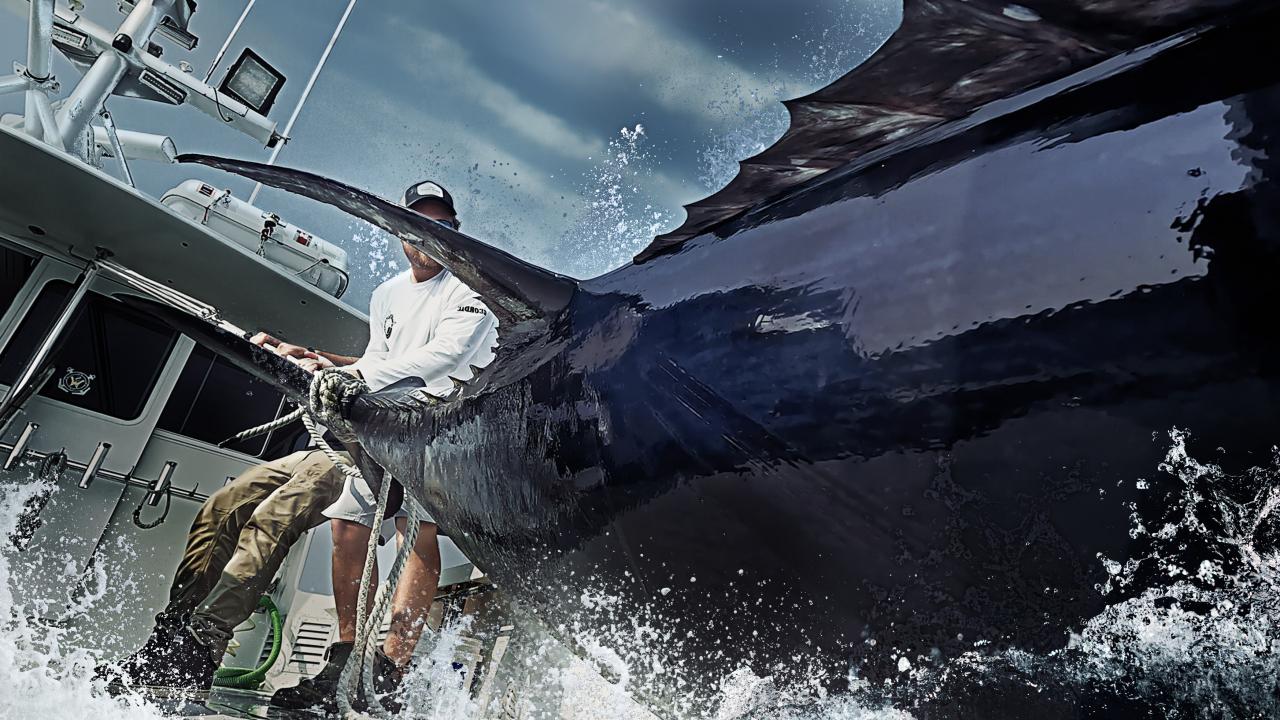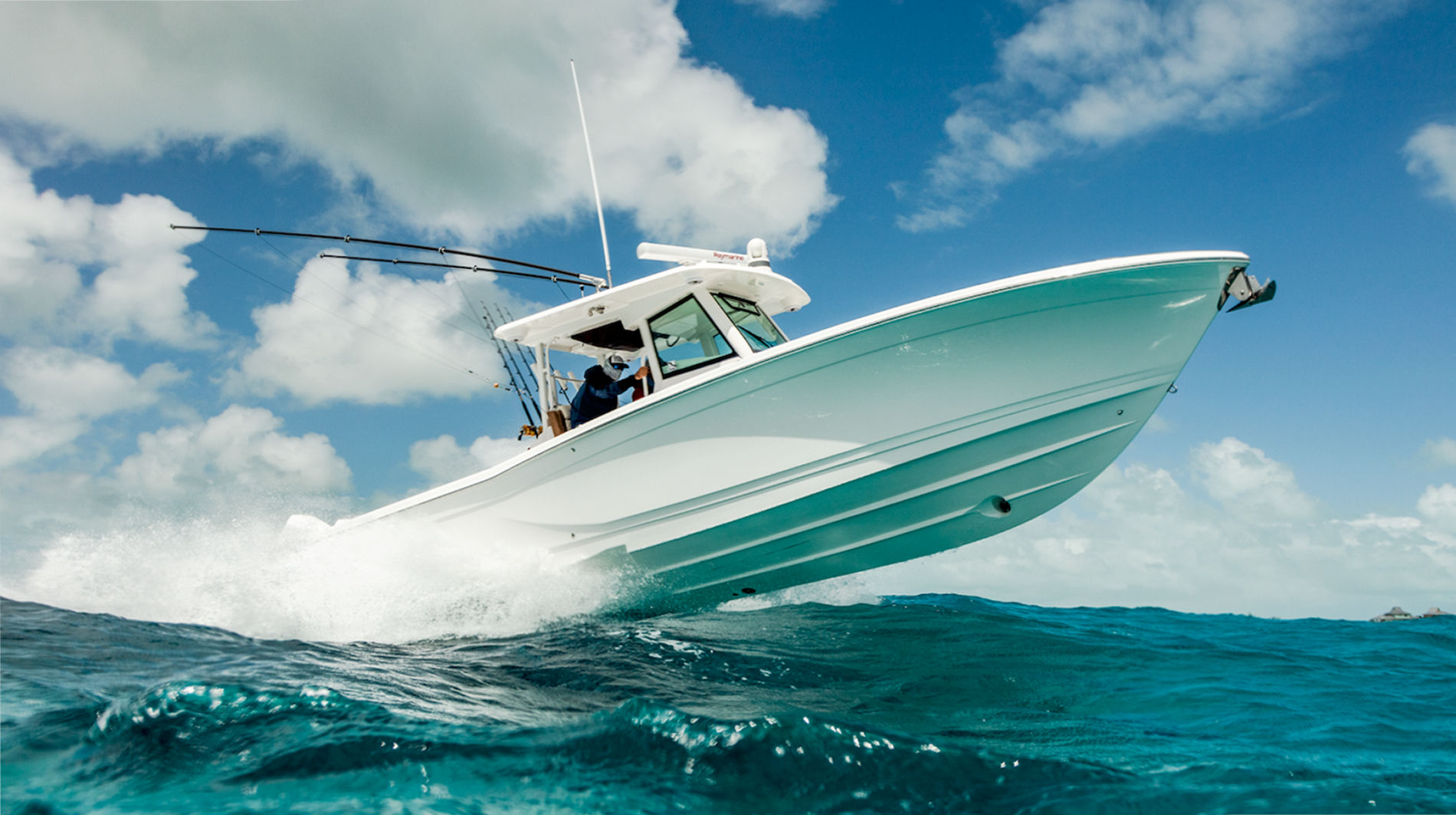Chris and Lisa Ruth: Ocean Littering Scandal Post Boca Bash 2024
A shocking incident occurred recently at Boca Bash 2024, involving a boat owned by Chris and Lisa Ruth. The couple was not present on the boat but their son & unknown guests were caught dumping massive amounts of garbage into the ocean. This brazen act was captured on video, and the footage quickly went viral, drawing widespread outrage and concern for the environment.
Florida's annual Boca Bash is a popular boating event with a festive atmosphere. However, the revelers' reckless actions have put a dark cloud over the event. The video clearly shows the boat, owned by the Ruth family, as the occupants dispose of two huge trash cans filled with waste directly into the ocean and celebrate their deed.
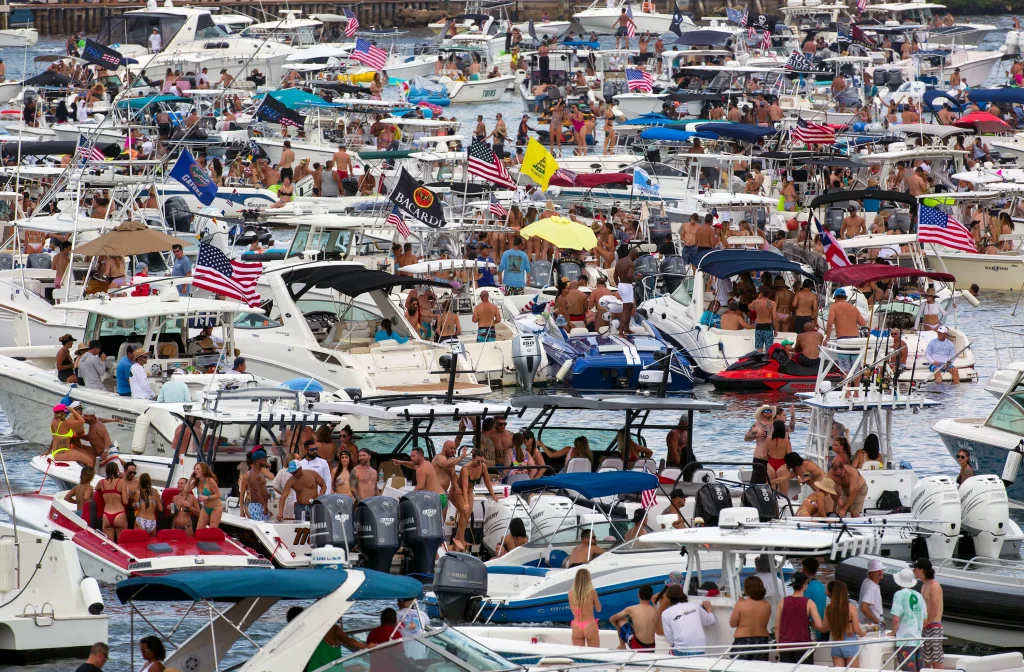
Key Takeaways
- The boats occupants were caught disposing large amounts of garbage into the ocean during Boca Bash 2024
- The boat owners were not present during the incident
- The incident was captured on video and has received widespread condemnation
- The event raises concerns about the wider issue of ocean dumping and the need to protect marine habitats.

Background on Boca Bash 2024
Boca Bash Overview
Boca Bash is an annual boating event that takes place on Lake Boca Raton in Florida. Thousands of boaters, jet skiers, kayakers, and paddleboarders gather on the last Sunday of April for a huge party on the lake.
The event has grown in popularity over the years, becoming the biggest event on Boca Raton's beautiful intracoastal waterway1.
The 2024 Boca Bash brought together people who wanted to enjoy the waters of Lake Boca while reveling in the company of fellow boating enthusiasts. Although the event has a spontaneous vibe, it usually draws a massive crowd2, with some participants occasionally engaging in irresponsible behaviors.

Chris and Lisa Ruth - Boat Owners
At the 2024 Boca Bash, a couple named Chris and Lisa Ruth own a boat caught on camera (they were not present during the incident), dumping garbage into the ocean3, it's reported their son was captaining the boat at the time but there is no exact knowledge of the name of the two young men doing the dumping.
This brazen act of littering has sparked public outrage, considering that the ocean is an important natural resource that people generally aim to protect.
The boaters actions are far from being representative of all the attendees at Boca Bash, but it does shed light on the importance of responsible behavior during events like these. Such incidents can tarnish the reputation of Boca Bash, an event that many locals and visitors look forward to each year.
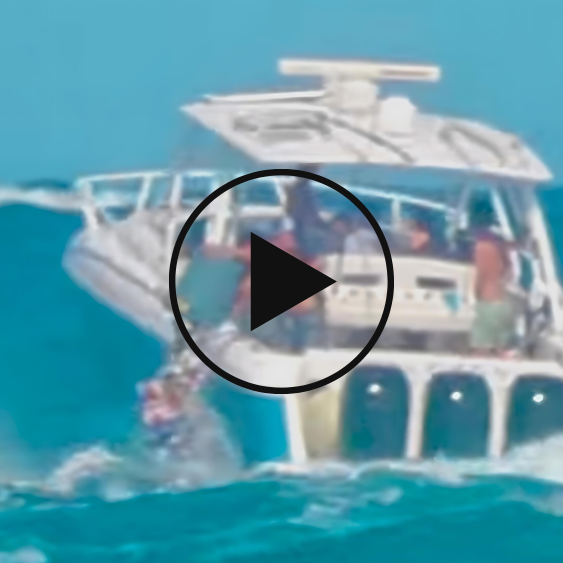
Footnotes
- Everything You Need to Know - Boca Post ↩
- Boca Bash 2024 wild boat party images on Lake Boca Raton Florida ↩
- Revelers seen dumping huge trash cans full of garbage into the ocean ↩
The Incident
Documentation of the Act
During Boca Bash 2024, a shocking event took place involving a boat owned by Chris and Lisa Ruth. Guests on the boat were caught on camera dumping huge trash cans full of garbage into the ocean from their boat.
Various videos of the incident have surfaced online, showing the blatant disregard for the environment and marine life.
The videos reveals boat occupants boldly tossing garbage into the ocean, as if it were an acceptable action. This has led to widespread public outrage, as people condemn their actions and demand accountability.
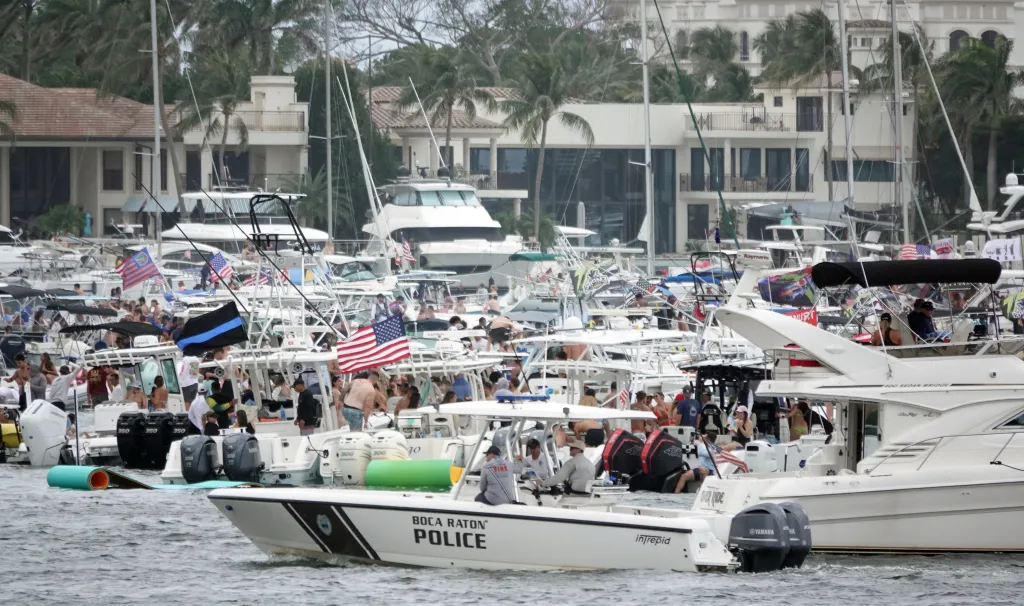
Immediate Response
Once the videos were released, there was a swift response from the online community. Many shared the footage and called for consequences for the polluters actions.
As a result, Chris and Lisa Ruth soon faced backlash, with some individuals even identifying their $3.7 million home located in Gulf Stream, Florida via LinkedIn profiles.
There have not been any significant updates on the situation since these events unfolded, but it demonstrates the power of social media in spreading awareness about environmentally damaging actions. The clear message is that such acts will not go unnoticed, with individuals held accountable for their behavior, regardless of where they are or what they may be engaged in.
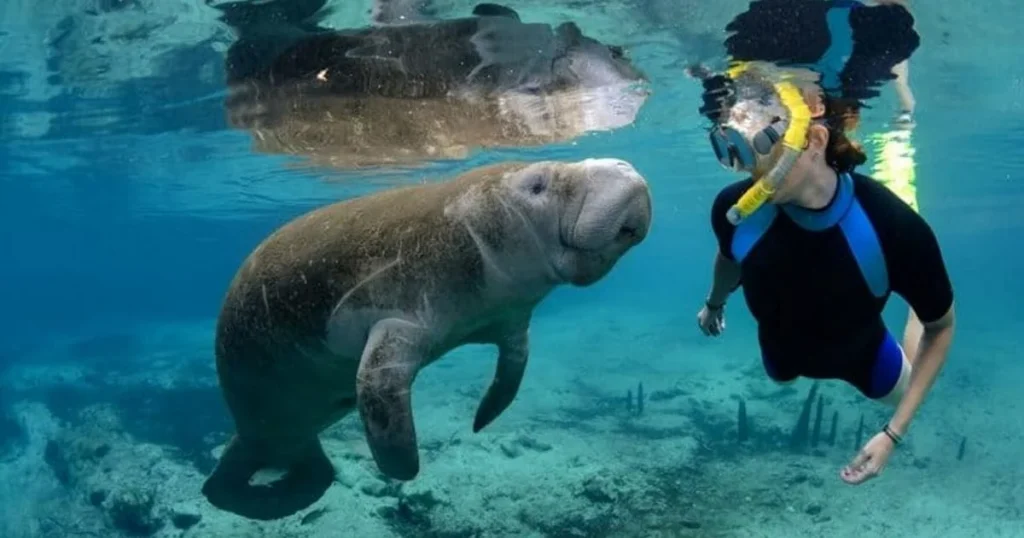
Environmental Impact
Effects on Marine Ecosystem
The act of dumping garbage, especially plastic debris, into the ocean has severe consequences for marine ecosystems.
The accumulation of such waste disrupts the natural balance, leading to habitat destruction and changes in the availability of food resources for marine life.
Threat to Marine Animals
Marine animals are at the forefront of the dangers posed by ocean trash.
It is estimated that 5.25 trillion pieces of plastic debris are present in the ocean, posing a constant threat to various marine species.
Ingestion of plastic materials can lead to internal injury and blockages in the digestive systems of fish, turtles, and seabirds, often resulting in death.
Entanglement in larger debris, such as discarded fishing nets, poses a serious risk for marine mammals and other large marine species. This can lead to injury, decreased mobility, and even drowning.
| Threats to Marine Animals | Consequences |
|---|---|
| Ingestion of plastic | Internal injury, blockages in the digestive system, death |
| Entanglement in debris | Injury, decreased mobility, drowning |
Long-term Consequences for Oceans
The continuous dumping of garbage into the ocean has long-lasting implications for the health of marine ecosystems and, consequently, the planet as a whole.
The accumulation of plastic waste not only directly affects marine life but also has indirect consequences, such as the leaching of harmful chemicals into the ocean.
This can lead to water pollution, negatively affecting the overall health of the marine environment.
Moreover, as plastic waste accumulates and persists in the ocean for centuries, the problem continues to escalate, driving further imbalance in oceanic ecosystems. The dumping of garbage into the ocean, like the incident following Boca Bash, only serves to perpetuate the ongoing crisis facing our planet's most crucial life-supporting resource.
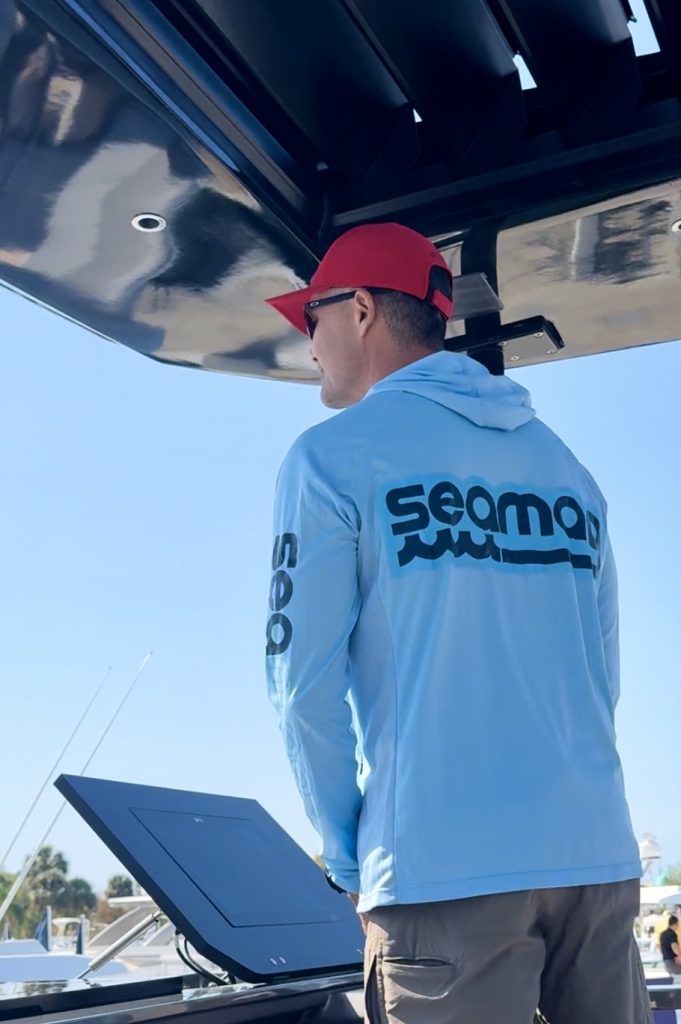
Legal Ramifications
Ocean Dumping Regulations
In the United States, ocean dumping is regulated by various federal laws, including the Ocean Dumping Act and the London Convention.
These regulations aim to protect marine life and the environment by promoting responsible waste management practices. They require monitoring and reporting of disposed materials, and establish specific locations for dumping hazardous substances.
Furthermore, the Ocean Dumping Act has provisions in place to penalize individuals and organizations that violate its regulations. These penalties may include monetary fines and even imprisonment.
Penalties and Fines
Based on the information available, unidentified occupants were caught on camera dumping a substantial amount of garbage into the ocean after leaving the Boca Bash in 2024. This act is considered a violation of federal laws and could lead to severe consequences for the boaters.
In similar cases (although much larger in scale) , like the one involving a foreign ship company dumping waste off the coast of California, penalties have amounted to millions of dollars.
Based on the severity of the crime and the nature of the waste they dumped, receiving fines is a likely outcome of their actions.
Additionally, they may face increased scrutiny and potential legal action from various environmental organizations, as well as the federal government. The specific penalties will depend on the exact details of the charges and the severity of the environmental impact caused by their actions.
Public and Organizational Response
Florida Department of Environmental Protection
The Florida Department of Environmental Protection (FDEP) has taken swift action following the incident at Boca Bash 2024.
FDEP has launched an investigation and is working closely with local authorities to address the issue.
Moreover, the department has stressed the importance of protecting Florida's natural resources, ecosystems, and marine life from such harmful actions. They have also shared resources on how to properly dispose of garbage, which can be found on the FDEP website.
Environmental Protection Agency (EPA) Involvement
The Environmental Protection Agency (EPA) has also stepped in to assess the impact of the dumped garbage on the ocean.
The EPA is closely monitoring the situation and working with the FDEP to evaluate potential measures to safeguard oceans from further pollution.
In addition, they are also encouraging the public to do their part in preventing marine pollution by following proper garbage disposal practices and raising awareness on the issue.
Public Outcry and Activism
Following the incident, there has been a significant public outcry and an increase in activism among environmentalists and concerned citizens.
Local communities, organizations, and nonprofits have started collaborating on clean-up efforts and initiatives to educate the public on the dangers of improper waste disposal.
Volunteers have come forward in large numbers, showing their commitment to protecting the environment.
Global Challenges
While the incident with at Boca Bash 2024 highlights a specific case of irresponsible behavior, it sheds light on the wider issue of ocean dumping. The ocean is home to 5.25 trillion pieces of plastic debris.
These pieces not only impact marine life, but also accumulate toxins harmful to the ecosystem. Industrial waste and littering further exacerbate the problem, with materials like plastic microfibers infiltrating the deep sea.
Governments and industries face mounting pressures to address the issue, particularly in the context of the plastic pollution crisis. Solutions include promoting recycling, implementing waste management policies, and investing in innovative technologies to tackle the problem.
Preventive Measures and Solutions
Preventing ocean dumping requires a multifaceted approach, involving governments, businesses, and the general public.
First and foremost, recycling does play an important role in reducing the amount of trash entering the oceans. By transforming waste into new products, we can decrease the amount of debris entering the sea.
Legislation and enforcement are crucial to combat illegal dumping practices. For instance, the Marine Protection, Research, and Sanctuaries Act (MPRSA) in the United States regulates ocean dumping activities, aiming to mitigate environmental impacts. Strict penalties for violators would serve as deterrents for potential offenders.
Public awareness campaigns on the importance of proper waste disposal and recycling can contribute to a shift in behavior. By raising awareness of the consequences of littering and dumping, individuals may think twice before disposing of trash irresponsibly.
Finally, investment in emerging technologies can help alleviate the existing problems of ocean dumping. For example, innovative waste management solutions and recycling strategies could significantly limit the amount of debris entering the ocean. Education and collaboration between various stakeholders are essential to ensure a more sustainable future for our oceans and the planet.
Safeguarding Marine Habitats
Community Engagement
Local communities play a vital role in protecting marine habitats, such as lakes, rivers, bays, and sounds.
In recent events, it is important for community members to actively report and condemn such actions to discourage others from engaging in harmful behavior.
By organizing beach cleanups and promoting responsible boating at popular events like Boca Bash, citizens can work together to prevent further pollution of offshore areas.
Educating the public about the consequences of marine pollution, such as the Great Pacific Garbage Patch, is also essential in fostering a sense of responsibility and dedication towards preserving these natural resources.
Organizations can host workshops and seminars to raise awareness about the dangers of marine trash and waste disposal, particularly in sensitive ecosystems that lie within three miles of the coast.
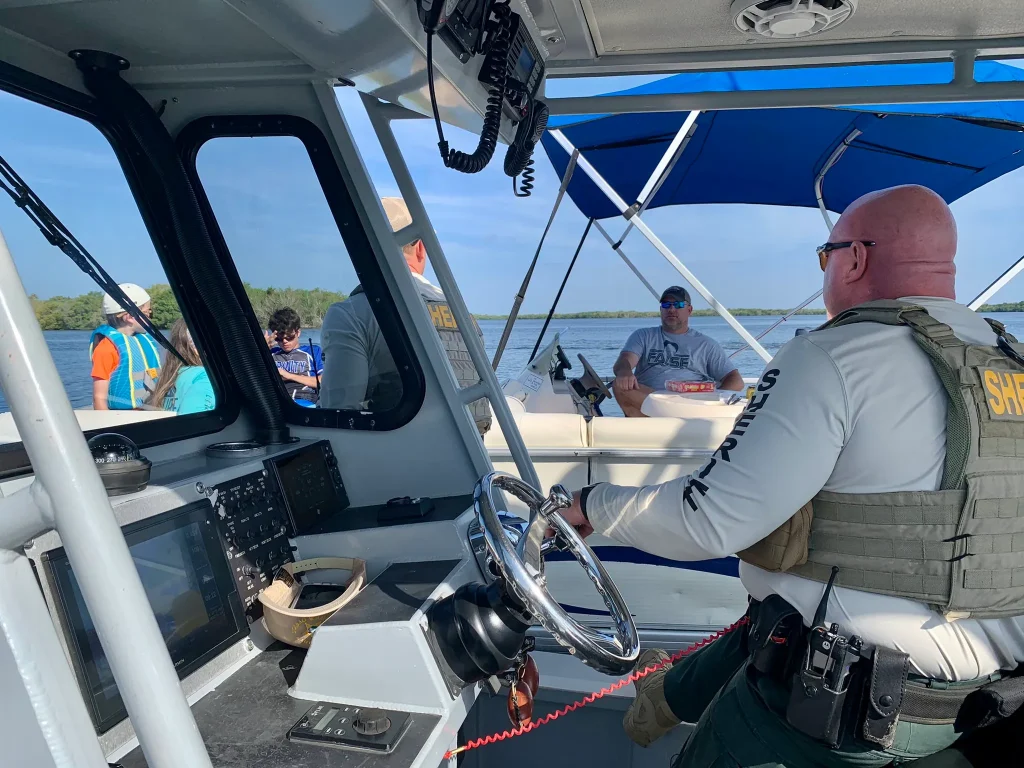
Legislation and Enforcement
Alongside community efforts, the implementation and enforcement of laws and regulations are crucial to safeguard marine habitats.
Governments and local authorities must establish strict guidelines for waste disposal in and around bodies of water, including the penalties for violating these rules.
For example, enforcing appropriate waste disposal laws on ships and other vessels can significantly reduce ocean pollution. Regular inspections of boats and monitoring of their waste management practices can help ensure compliance with established regulations.
Moreover, governments should collaborate with environmental organizations and researchers to monitor marine habitats, bolster recycling initiatives, and develop innovative solutions to reduce plastic waste.
By working together, the protection of marine environments can be achieved while maintaining a balance between human needs and the preservation of natural ecosystems.

Conclusion
The incident of dumping garbage into the ocean after leaving Boca Bash 2024 has highlighted a significant issue faced by our marine environment. The act of disposing trash in the ocean has severe consequences for both marine life and the overall health of our planet. It is essential to recognize the magnitude of such actions and consider implementing conservation efforts to combat these challenges.
Awareness about the detrimental impacts of pollution on the ocean is vital, as an estimated 8 million metric tons of plastic waste enters the waters each year. The marine environment suffers not only from visible pollution like garbage, but also from less obvious threats like bilge water and microplastics.
Educating the public and enforcing laws related to ocean dumping is crucial for global conservation efforts.
Several possible solutions can be considered for safeguarding our oceans, including:
- Increased environmental education and awareness campaigns
- Stricter penalties for violators disposed of waste in the ocean
- Development of better waste management practices
- Encouraging recycling and reduced plastic consumption
Creating a healthy marine ecosystem requires a collaborative effort across all sectors of society. From individuals to governments and industries, everyone has a role to play in reducing pollution and conserving our oceans.
By learning from incidents such as the one involving the Ruth's boat, we can work together toward a brighter and cleaner future for our planet.

Frequently Asked Questions
What charges are the boaters facing for the ocean dumping incident at Boca Bash?
The polluters could be facing charges related to illegal dumping and/or water pollution. These charges can vary depending on local and federal laws. Penalties for such violations often include significant fines and potential jail time, depending on the severity of the incident. More information on charges will be available as the case progresses.
How did authorities identify Chris and Lisa Ruth's boat in the Boca Bash garbage dumping case?
Authorities may have used various investigative techniques, such as reviewing photos and videos of the event, interviewing witnesses, and collecting evidence found at the scene. Social media can also play a major role in identifying individuals involved in such incidents, as witnesses often share pictures and videos online.
What environmental impacts has the Boca Bash ocean dumping incident had?
While the immediate impacts of this particular incident have yet to be determined, we know that ocean trash in general can have severe consequences on marine life and ecosystems. Plastic waste, in particular, is known to be harmful to various species due to ingestion or entanglement.
What penalties could be imposed for the garbage dumping actions at Boca Bash?
Penalties for illegally dumping waste into the ocean could range from fines and community service to potential jail time, depending on the severity of the situation and the laws governing the incident. The EPA provides guidelines for ocean dumping regulations, which are enforced in the United States.
How has the Boca Bash ocean dumping incident affected local wildlife?
While specific effects on local wildlife due to this incident are not known, marine animals are often the most affected by ocean waste. They may face health risks due to ingestion of plastic or entanglement in debris. Such incidents also contribute to declines in biodiversity and overall health of marine ecosystems.
What steps are being taken to prevent similar incidents in the future?
Preventative measures may include increased monitoring and enforcement of existing laws. Public education campaigns about the importance of proper waste disposal are also being considered.
Events like Boca Bash could also implement stricter guidelines for trash management. They could even consider reusable materials to reduce potential waste.
Organizations, such as Ocean Conservancy, can help raise awareness and work towards reducing ocean waste and its harmful effects.
Charlie is Editor-in-Chief of Sea Magazine

